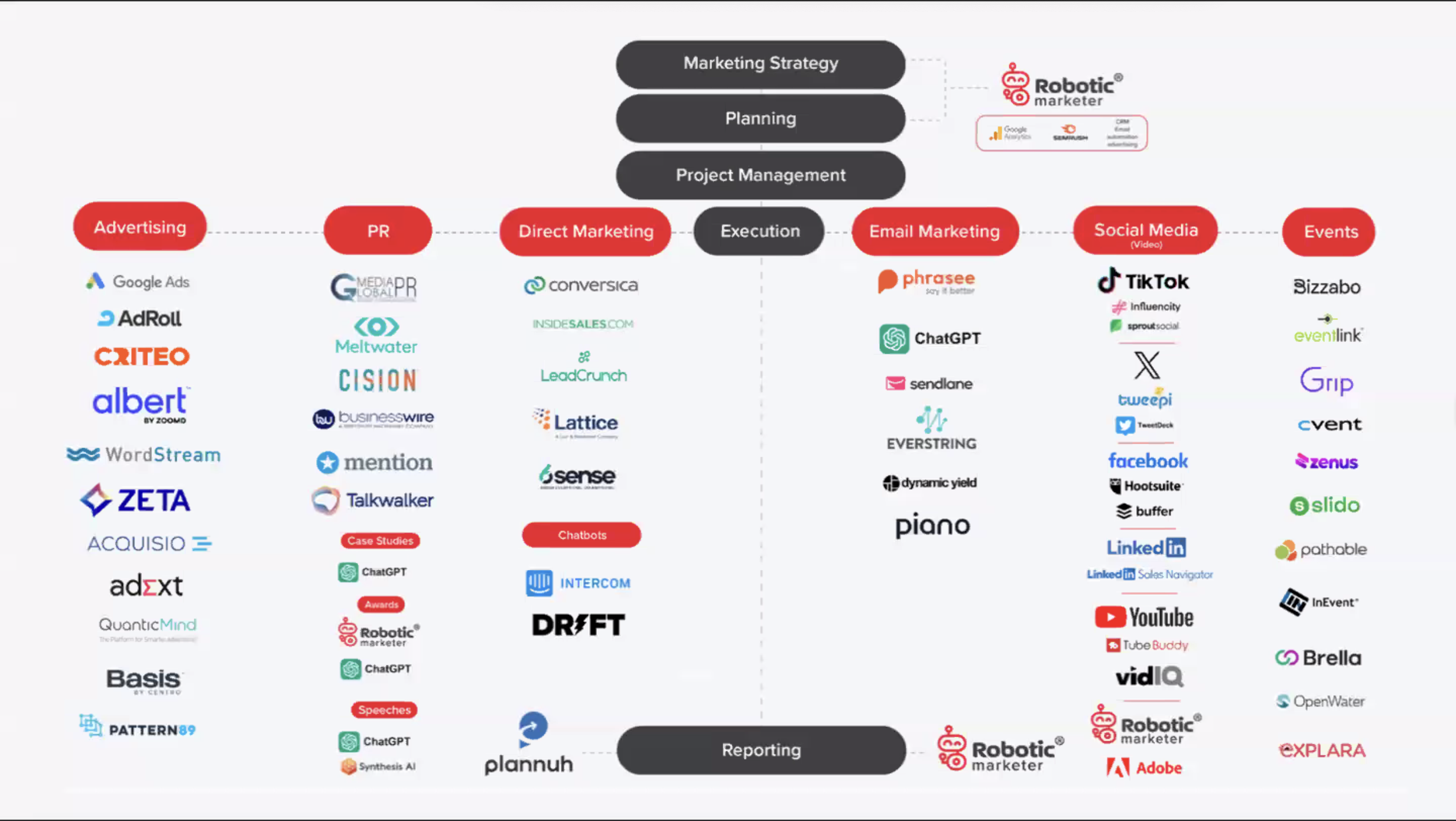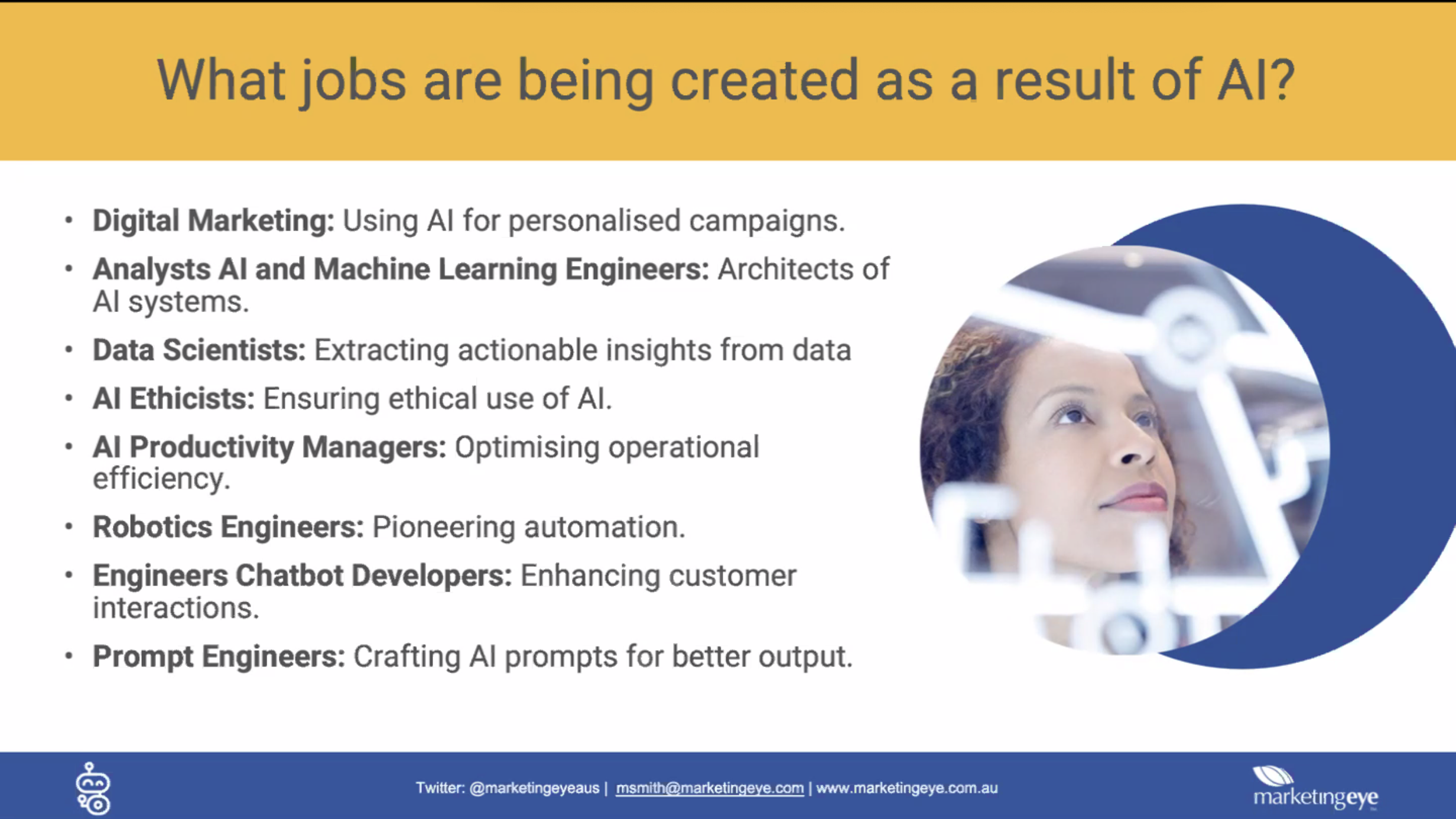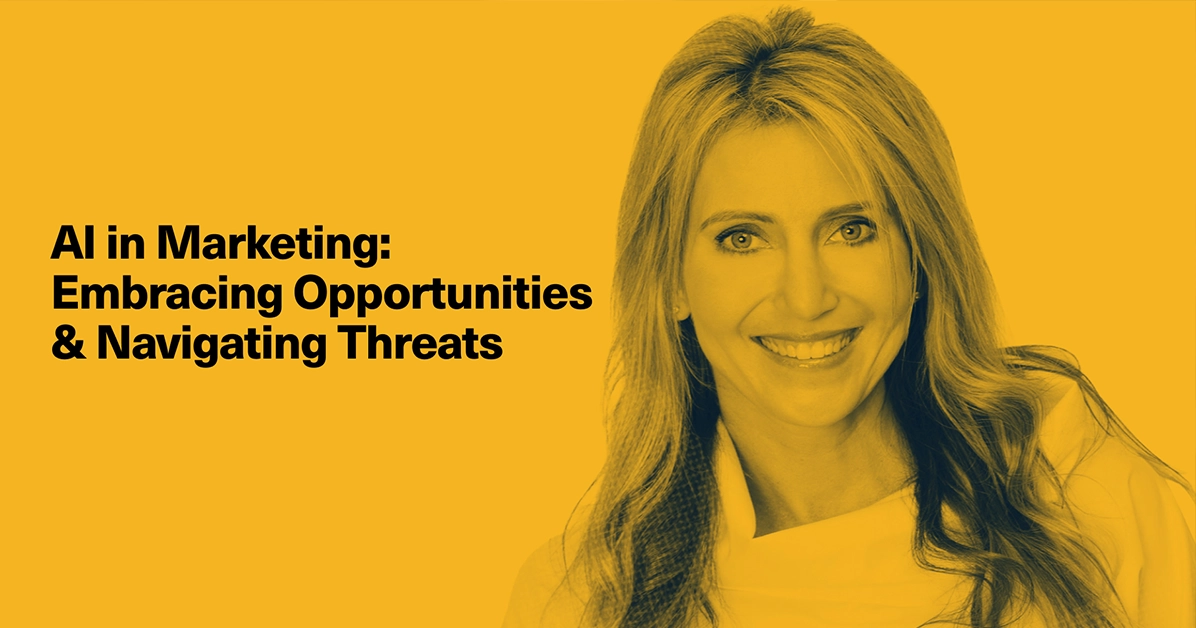In the evolving world of marketing, AI (Artificial Intelligence) is no longer just a buzzword—it's a tool reshaping the entire marketing landscape. As marketers, we must ask ourselves what this innovation means for our careers and how we can best utilise AI without losing the integrity of our craft.
With a 30 year plus career in marketing, starting out on a mere typewriter and evolving through the eras to computers, internet and now AI, there are many things that I’ve had the privilege to learn through trial and error.
First, I was not always an early adopter. I in fact said “No” to using email, only to be forced into adoption when I started work in a technology company. I also said “No!” to Facebook, only to find that my clients and I were being left behind. But I didn’t say no to AI because by this stage I had not only learned my lesson but realised that AI was the single biggest opportunity that the marketing industry had of realising its full potential and getting the credit for the work that we do.
There are many key facets shaping the relationship between AI and marketing jobs, which cause promise and uncertainty, of which I have discussed in my Digitalks presentation which you can watch on-demand.
Top AI Tools

Adoption Trends in Martech
Recent data shows a curious trend in the marketing tech world. A survey by Gartner in 2023 revealed that the average utilisation of Martech stacks has been declining, from 58% in 2020 to just 33% in 2023. Despite this, there's a growing interest in generative AI. A significant 63% of marketing leaders plan to invest in generative AI in the upcoming two years, and 56% see more rewards than risks with this technology.
The AI Hesitation
If you're a marketer holding back on AI, it's essential to:
- Identify the problem: Understand what's preventing you from leveraging AI.
- Understand the implications: Weigh the consequences of adopting or ignoring AI.
- Address the challenge: Find effective solutions to overcome any hesitations.
But is using AI considered “cheating”? The answer largely depends on the context. While some sceptics question the ethics of AI, a 2023 Forrester study suggests that 60% of them will eventually use and appreciate generative AI, whether they realise it or not.
The New Face of Marketing Jobs in the AI Era
The most pressing question for many marketers is how AI will affect their career paths. Is AI a job-stealer or a career-enhancer? For many that have spent thousands on a college education only to start their first jobs and realise that “AI can do that”, it’s daunting.
But trust me, what you have learned at college will come in handy. University Degrees teach you discipline, structure and importantly, the meaning behind what you do as marketers.
While AI can do most things we learn at university, it is yet to show promise when it comes to true original creativity and next level content. In essence, AI will help you become more productive, efficient and effective in your marketing career. It will also allow you more time to think about the marketing programs you run and give you back time to scale. Most importantly, it will do the reporting that can be quite mundane.
Job Functions Being Replaced or Enhanced by AI
Automated algorithms are already performing tasks like customer segmentation, data analytics, marketing strategy and even content creation to some extent (I’ve yet to see content get to a 100% stage during AI).
Yet, this isn't necessarily a reason for you to hang up your boots! It’s a starting point, that helps you move faster, smarter and with better outcomes. AI should be viewed as a tool that can perform repetitive tasks with unparalleled efficiency, freeing humans to do what we do best—creative thinking, strategic planning, and relationship building.
u0022AI is not here to steal jobs; it's here to enrich them, to elevate us from data crunchers to strategists and creatives.u0022
Career Advantages: New Roles and Specialisations
AI is fostering new specialisations within the marketing domain, such as AI Strategists and Marketing Prompt Engineers who focus specifically on marketing applications. It's creating avenues for professional development that were previously unthought-of, adding layers of expertise and opportunities for upward mobility within the industry.

The Tangible Benefits of AI
Netflix and Amazon are prime examples of companies harnessing the power of AI for personalization. Netflix's AI-driven recommendations are estimated to save over $1 billion annually by reducing churn rates. Meanwhile, Amazon attributes a whopping 35% of their total revenue to AI-powered product recommendations.
Measuring AI's Effectiveness
To analyse the effectiveness of AI in marketing:
- Define clear objectives: Set specific and measurable goals that you aim to achieve with AI.
- Collect relevant data: Gather pertinent information that can feed and train the AI system effectively.
- Establish a baseline performance: Determine the current performance level to compare future results against.
- Identify Key Performance Indicators (KPIs): Pinpoint essential metrics that will gauge the success of the AI implementation.
- Regularly test and experiment: Continuously challenge and refine the AI system through various scenarios to optimize its performance.
- Conduct thorough data analysis: Dive deep into the data results to extract insights and understand the impact of AI on your objectives.
Addressing Ethical Concerns in AI
Adopting AI isn't just about the technological advancements; it also brings along ethical considerations. From job displacement and bias to privacy concerns and security risks, there's a lot to ponder. Marketers must be proactive in addressing these concerns and ensuring a responsible approach to AI adoption.
Embracing AI in Marketing
AI is here to stay, and marketers must adapt.
To fully embrace AI:
- Understand its fundamentals: Grasp the basic principles and workings of AI to make informed decisions.
- Identify relevant use cases: Pinpoint specific scenarios or challenges where AI can offer solutions and enhance outcomes.
- Collaborate with AI specialists: Partner with experts in the AI field to leverage their knowledge and experience.
- Stay updated with new trends: Keep abreast of the latest developments in AI to remain competitive and innovative.
- Promote human-AI collaboration: Foster a synergy between human creativity and AI efficiency for optimal results.
- Invest in AI training: Dedicate resources to upskill teams, ensuring they can harness AI's full potential.
- Continuously experiment and learn: Adopt a mindset of perpetual learning, iterating based on feedback and discoveries.
Leading tech companies are already integrating generative AI into their platforms. Adobe Photoshop's generative fill feature, Google's Bard search option, and LinkedIn's AI-generated content are testament to the technology's growing influence.
The Balancing Act: Human vs. AI
AI's capabilities are tremendous, but there are arenas where human skills are irreplaceable. AI gets you so far, but it’s your skills as a marketer that will take you and the brands you work on – all the way!
Where to Humanise and Where to Let AI Take Over
Emotional intelligence, strategic creativity and client relationship management are domains where humans have the upper hand. AI is highly efficient at data crunching and pattern recognition but lacks the nuance and emotional depth that human interactions offer. AI in marketing is not something we can or should ignore—it's a reality we must actively embrace and adapt to, otherwise we will fall behind. By doing so strategically and ethically, we position ourselves to not just survive but thrive in this new era where AI becomes our best friends, our most valued co-worker and our saving grace.
Watch our Digitalks webinar on-demand and get ready to transform your marketing.
Latest.

5 simple (but powerful) ways to shine in your design interview.
Job Seeker, Design

How to demonstrate the value of your design team in 2025
Thought Leadership, Design, Industry Trends, Leadership

Ace your interview: Words to watch out for.
Job Seeker




